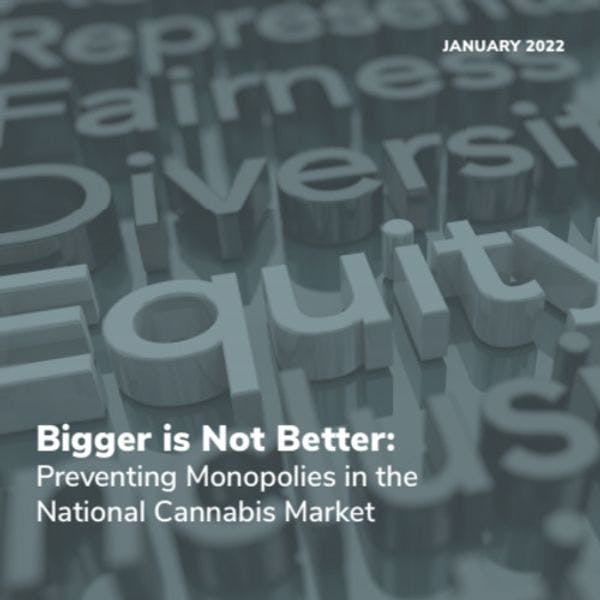Más grande no equivale a mejor: previniendo los monopolios en el mercado nacional de cannabis
Shaleen Title expone un conjunto de propuestas de políticas para promover el crecimiento de un mercado diverso y competitivo, centrado en los consumidores y en la salud pública, a la vez que consolida programas de equidad efectivos que ya funcionan en mercados del Estado. Más información, en inglés, está disponible abajo.
By Shaleen Title, Ohio State University (OSU) - Michael E. Moritz College of Law
Abstract
It is a crucial and vulnerable moment for the future of the cannabis market. While states are making historic progress creating paths for small businesses and disenfranchised groups, larger companies are expanding, consolidating, and lobbying for licensing rules to create or maintain oligopolies. Federal legalization will only accelerate the power grab already happening with new, larger conglomerates openly expressing interest. Left unchecked, this scramble for market share threatens to undermine public health and safety and undo bold state-level efforts to build an equitable cannabis marketplace. This paper argues for intentionally applying well-developed antitrust principles to federal cannabis reform now, before monopolization of the market takes place, and offers eight concrete policy recommendations:
1. Allow people to grow a reasonable number of marijuana plants for personal use.
2. Prohibit vertical integration.
3. Do not cap the number of business licenses available in total, but limit how much of a market any one person or entity may control.
4. Create incentives for states to license small or disadvantaged businesses.
5. Enforce ownership limits and review mergers based on existing evidence of predatory and anticompetitive tactics in state marijuana markets.
6. Disqualify corporations from the cannabis industry if they have engaged in corporate crimes, defrauded the public, or caused significant public health damage.
7. Create a multi-agency task force to enforce anti-monopoly limits.
8. Authorize states to ban or delay interstate commerce in order to preserve state-level advantages to local businesses.
